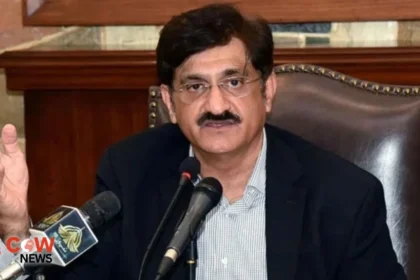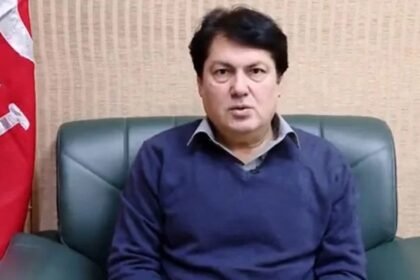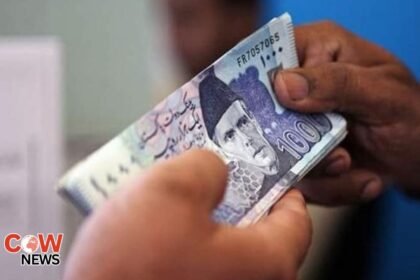The recent decision by the Federal Investigation Agency (FIA) to remove Parvez Elahi’s name from the Passport Control List (PCL) marks a significant turning point for the former Chief Minister of Punjab and current president of the Pakistan Tehreek-e-Insaf (PTI). This development is crucial not just for Elahi personally but also for the broader political landscape in Pakistan, where ongoing legal battles and political maneuvering have shaped the dynamics of power in the country.
Background on Parvez Elahi
Parvez Elahi has been a prominent figure in Pakistani politics for decades. Initially associated with the Pakistan Muslim League (PML), he later aligned with PTI, particularly during the party’s rise to prominence in the 2010s. His tenure as Chief Minister of Punjab was marked by a focus on infrastructure development and governance reforms, though it was also marred by controversies, including allegations of corruption and mismanagement.
Elahi’s political career began in the late 1980s when he was elected to the National Assembly. He quickly rose through the ranks of the PML, eventually becoming the party’s leader in Punjab. His time in office has been characterized by efforts to implement developmental projects, improve healthcare, and enhance educational facilities in the province. However, these achievements have often been overshadowed by allegations of corruption and abuse of power, particularly during his tenure as Chief Minister from 2002 to 2007.
In recent years, Elahi has faced multiple legal challenges that culminated in his imprisonment, raising questions about the fairness of the judicial process in Pakistan. Critics argue that such legal battles are often politically motivated, aimed at sidelining opponents rather than delivering justice.
The Legal Context
Elahi’s name was placed on the PCL due to various ongoing cases, which often included allegations of corruption, abuse of power, and other misconduct. The PCL is typically used to restrict individuals from traveling abroad while they are involved in legal proceedings. For politicians like Elahi, being on this list can severely limit their ability to engage in political activities, campaign, or even attend international conferences.
The Lahore High Court (LHC) recently disposed of Elahi’s application to remove his name from the PCL. The court’s decision, which followed a review of the FIA’s report, reflects a complex interplay between the judiciary and the political landscape in Pakistan. Justice Shams Mahmood Mirza’s ruling underscores the role of the courts in mediating between law enforcement agencies and political figures, often serving as a battleground for broader political conflicts.
The FIA’s role in placing Elahi on the PCL and subsequently removing his name has sparked debates about the agency’s independence and its approach to politically sensitive cases. Critics argue that the FIA has often been used as a tool by ruling parties to target opposition leaders, raising concerns about the impartiality of the judicial and investigative processes in Pakistan.
Implications of the Removal
The FIA’s decision to remove Elahi from the PCL has several implications for both him and the PTI. Firstly, it allows Elahi to travel freely, enabling him to engage more actively in political campaigns and party activities, especially as the country approaches crucial elections. This increased mobility can provide Elahi with opportunities to rally support and re-establish his influence within the party and among constituents.
Moreover, this decision could signal a shift in how the legal system interacts with political figures in Pakistan. The removal might be seen as a step towards easing political tensions and allowing for greater political engagement among opposition leaders. It could potentially pave the way for negotiations or alliances, especially in the face of a politically fragmented landscape.
A New Era for Political Engagement
Elahi’s re-entry into the political fray comes at a time when PTI is attempting to consolidate its position after a series of setbacks, including the ousting of former Prime Minister Imran Khan. With Elahi now able to travel and participate in political activities, PTI may look to leverage his experience and connections to strengthen its position in upcoming elections.
In the broader context, the removal of Elahi from the PCL raises questions about the judiciary’s role in facilitating or obstructing political processes. If the courts are seen as neutral arbiters, this could restore some public confidence in the judicial system. Conversely, if perceived as favoring certain political factions, it could exacerbate existing tensions and contribute to a more polarized political environment.
Political Reactions
Reactions to the FIA’s decision have been mixed. Supporters of Elahi and the PTI hailed the ruling as a victory for justice and democracy, emphasizing that political leaders should not be hindered by legal entanglements that many believe are politically motivated. They argue that the decision demonstrates the judiciary’s independence and commitment to upholding democratic principles.
Conversely, critics argue that the removal of Elahi from the PCL might undermine the legal accountability of politicians. Some believe that it sets a precedent that could encourage other political figures to exploit legal loopholes to evade justice. They caution that the political landscape in Pakistan is already rife with accusations of corruption and malpractice, and easing restrictions on influential figures may exacerbate these issues.
The Role of Public Sentiment
Public sentiment plays a crucial role in shaping the political landscape, especially in a country like Pakistan, where trust in institutions is often fragile. The perception that political figures can evade accountability due to their influence or connections can lead to widespread disillusionment among the electorate. This disillusionment can manifest in various ways, from voter apathy to protests against perceived injustices.
As such, both Elahi and the PTI must navigate this delicate terrain carefully. Engaging transparently with the public and demonstrating a commitment to reform will be critical in regaining trust and support. The party must also be prepared to address any allegations of corruption head-on, as failure to do so could undermine their political capital.
The Broader Political Landscape
The situation surrounding Parvez Elahi and the PTI is emblematic of the larger challenges facing Pakistan’s political landscape. The country has been grappling with issues of governance, corruption, and political instability, leading to widespread public disillusionment with the political elite. As various factions vie for power, the judicial system often finds itself in the crossfire, with accusations of bias and politicization frequently levied against it.
The political climate in Pakistan has become increasingly polarized, particularly since the ousting of Imran Khan. Various parties, including the Pakistan Peoples Party (PPP) and the Pakistan Muslim League-Nawaz (PML-N), are also positioning themselves to capitalize on any perceived weaknesses within PTI. In this context, Elahi’s role could be pivotal in helping PTI navigate this turbulent landscape.
Strategic Alliances and Opposition Dynamics
In the wake of his removal from the PCL, Elahi could play a crucial role in forming alliances with other political factions. The opposition parties are often fragmented, and strategic alliances could help consolidate their power against the ruling party. If Elahi manages to rally support from other influential political figures, it could significantly alter the dynamics of the upcoming elections.
Elahi’s connections within Punjab, Pakistan’s most populous province, are especially vital. Punjab has historically been a stronghold for the PML and PTI, and maintaining a robust political presence in the province is essential for any party aiming for national power. Elahi’s re-emergence could help PTI regain its footing in Punjab, potentially drawing in voters who may have become disillusioned with the party’s leadership since Khan’s ousting.
Future Prospects for Parvez Elahi and PTI
Looking ahead, Parvez Elahi’s re-emergence as a more active political figure could have significant consequences for the PTI and the opposition as a whole. His experience and connections within Punjab could prove invaluable as PTI seeks to regain its footing. However, the challenges are immense. The political landscape in Pakistan remains volatile, with shifting allegiances and rising tensions between various factions.
Elahi and PTI must navigate these waters carefully, balancing the need to engage in political activities with the ever-present threat of legal challenges. The risk of re-entering the legal fray is a constant concern, especially given the history of politically motivated cases against opposition leaders.
The Importance of Public Engagement
Public engagement will be crucial for Elahi and the PTI as they attempt to rebuild their political capital. Town hall meetings, community outreach programs, and transparent communication strategies can help bridge the gap between the party and the electorate. Listening to constituents’ concerns and addressing them directly can foster goodwill and rebuild trust.
Moreover, as public scrutiny of politicians intensifies, Elahi will need to be proactive in addressing concerns regarding corruption and governance. Demonstrating accountability and a commitment to ethical governance will be essential in regaining public trust and support.
Challenges Ahead
Despite the potential for a political comeback, Elahi and the PTI face numerous challenges. The political environment is rife with uncertainty, and the threat of further legal actions looms large. The opposition parties, particularly the PML-N and PPP, will undoubtedly scrutinize Elahi’s moves and may attempt to exploit any missteps to undermine his credibility.
Additionally, the public’s perception of the judicial system and its role in political accountability will remain a critical factor. If the public perceives that Elahi is receiving favorable treatment or that the judiciary is biased, it could lead to backlash against both him and the PTI.
The FIA’s decision to remove Parvez Elahi from the Passport Control List is a pivotal moment not only for him but also for the Pakistan Tehreek-e-Insaf party and the broader political environment in Pakistan. As Elahi steps back into a more active role, the ramifications of this decision will unfold in the coming months, shaping the political landscape as the country prepares for crucial elections. The balance between legal accountability and political engagement will continue to be a contentious issue, with implications for governance, democracy, and public trust in institutions.
#ParvezElahi #FIA #PCL #PTI #PakistanPolitics







